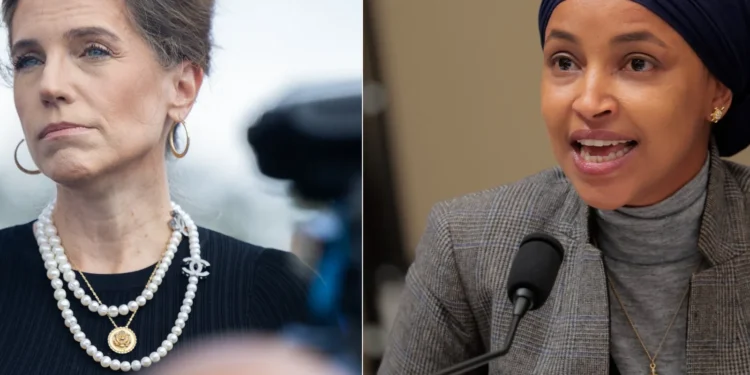On Friday’s broadcast of CNN’s The Source, Rep. Ilhan Omar (D-MN) found herself pressed on comments and actions that raise deeper questions about political rhetoric, responsibility, and the line between critique and endorsement. Omar had reposted a video that portrayed Charlie Kirk as “Dr. Frankenstein” who was “assassinated by his own monster.” When asked why she would share such a video, Omar defended the choice, insisting, “Because there were a lot of things in the video that I did agree with. Obviously, we share videos, we don’t have to agree with every single word, but I do believe he was a reprehensible, hateful man.”
Host Kaitlan Collins pointed out the controversy during the interview, pressing Omar about her decision. Collins reminded her that just six days earlier, at a town hall, she had publicly labeled Kirk “a hateful man.” When asked again why she had elevated a video using such graphic language, Omar reiterated, “Because there were a lot of things in the video that I did agree with. Obviously, we share videos, we don’t have to agree with every single word, but I do believe he was a reprehensible, hateful man. Like, that is my view of the words that he has said about every single identity that I belong to. He didn’t believe that we should have equal access to anything. He also just didn’t even believe I could be smart enough, I could have thoughts that could be equal to a white man.”
Her comments highlight a troubling dynamic in today’s political culture: words have consequences. While Omar later added, “I condemn political violence, and I obviously condemn the assassination of Charlie Kirk,” the fact remains that she amplified a message equating a political opponent with a villain and justifying his violent end. That kind of rhetoric, even if walked back with disclaimers, risks normalizing hostility at a time when the country desperately needs a return to civility.
Omar also tried to frame her position in broader terms, saying, “I put out a tweet right when he was killed that political violence is wrong and that we should work everything within our power to end gun violence in this country.” Yet for many Americans, the contradiction stands out clearly: condemning violence while sharing a video that metaphorically celebrates it.
For conservatives, the issue is not simply about one congresswoman’s social media habits. It’s about the larger culture of permissiveness toward inflammatory speech when it comes from the left. If a conservative lawmaker had reposted a video suggesting that a progressive figure deserved a violent fate, the outrage would have been immediate, relentless, and career-threatening. But when the roles are reversed, excuses are made.
This double standard is more than political theater—it erodes trust in institutions and undermines any call for unity. Free speech is fundamental, but so is accountability. Leaders are expected to model restraint, especially when the nation grapples with divisions deepened by reckless words. While Omar may claim to condemn violence, the decision to amplify such a video reveals a deeper carelessness with the responsibilities of public office. And that should matter to all Americans who still believe leadership requires discipline, respect, and common sense.




















